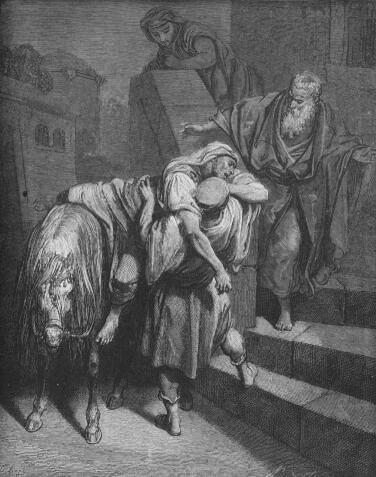
Why We Must Forgive (왜 용서해야 하는가)
(This is a recollection of thoughts after reading “How Christ Walked on Earth” by Hong-Chun Kim.)
Here’s a well-known passage of a dialogue that went between Jesus and his disciples regarding forgiveness:
Then Peter came up and said to him, “Lord, how often will my brother sin against me, and I forgive him? As many as seven times?” Jesus said to him, “I do not say to you seven times, but seventy times seven.” (Matthew 18:21,22; ESV)
Jesus’ words gives us the impression that we have no choice but to forgive.
Now, as it is for other aspects of Kingdom of God, forgiveness primarily takes place in the heart of one person—its outward appearance is not the ultimate measure of its genuineness. For instance, suppose your brother has a gambling problem and keep borrows your money to spend it in gambling. If you say “I forgive him” but inwardly hate him, you are not forgiving him. Or, even though you don’t hate him, if you don’t take actions to help him get out of the addiction, then you are not forgiving him out of love but jut giving up on him.
There is still another issue with forgiveness; that is, the ability to forgive; forgiveness only makes sense if you have the option to do otherwise, say, avenge, punish, etc. What if you don’t have those other options? Suppose someone beyond your power stole your property and you cannot do anything about it. So you decide to let go and forget about it. Can you say that you actively forgave the thief?
In fact, this issue does not vanish even if you do have other options, in the case where the thief is not that powerful and you can make him pay—because if you decide to make him pay, you should be able to evaluate his debt fairly and exactly. If you avenge on him more than he deserves, or for that matter less than he deserves, then you have executed injustice and have committed sin. “You shall have just balances, just weights, a just ephah, and a just hin” (Leviticus 19:36; ESV).
It is clear there is a fundamental lack of ability on us to perform just judgments. As the bible declares, “Moreover, I saw under the sun that in the place of justice, even there was wickedness, and in the place of righteousness, even there was wickedness.” (Ecclesiastes 3:16).
It is only the Holy One who can perform just judgment. No wonder we are required to “never avenge yourselves, but leave it to the wrath of God, for it is written, ‘Vengeance is mine, I will repay, says the Lord.’ ” (Romans 12:19)
Indeed, when Stephen was being stoned, he prayed “Lord, do not hold this sin against them.” Of course, the men who were stoning Stephen were sinning not only against Stephen but ultimately to God. Stephen here is humbly asking to pardon the evil they are doing to Stephen; not every single sin they committed to God; Stephen would have known well that he has no right to tell God what to do for the sins committed to God.
Going back to Peter’s question—“how often will my brother sin against me, and I forgive him?”—it seems that Peter is assuming that by forgiving his brother he is carrying out a virtue or merit. However, we know that we have no other choice but to forgive; by doing so we are not generating any virtue; it’s just a natural response to the fact that we have total inability to create justice and that God is the only dependable judge. Yes, we have an upright and just judge and He will not over pass any injustice that takes place in this world. The day comes when “each of us will give an account of himself to God.” (Romans 14:12)


